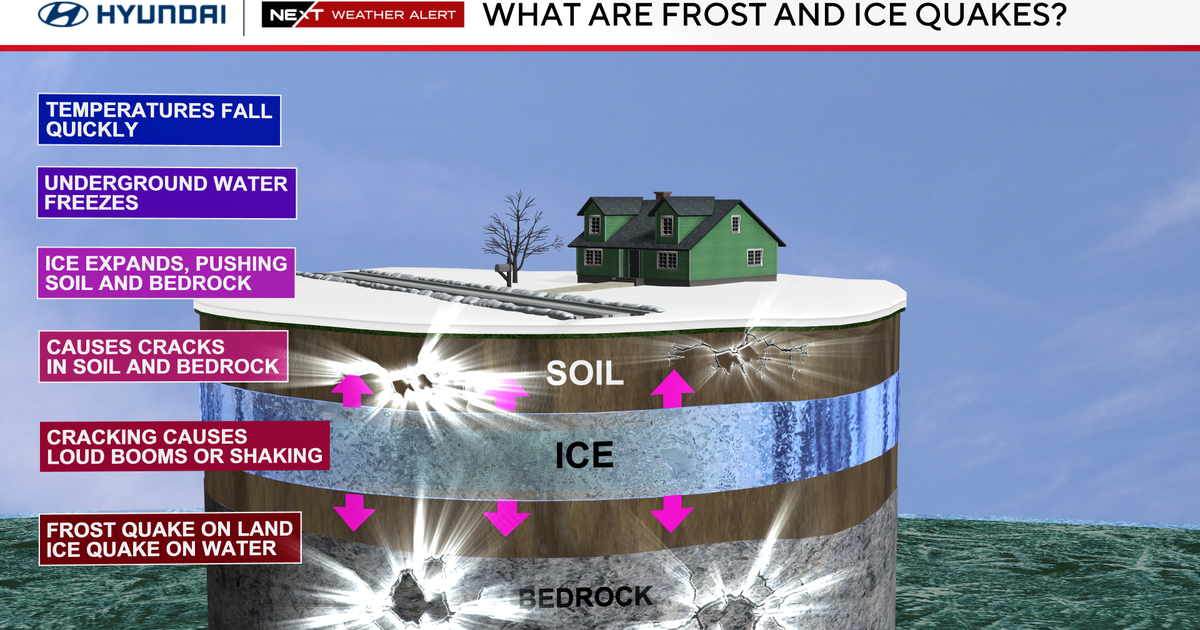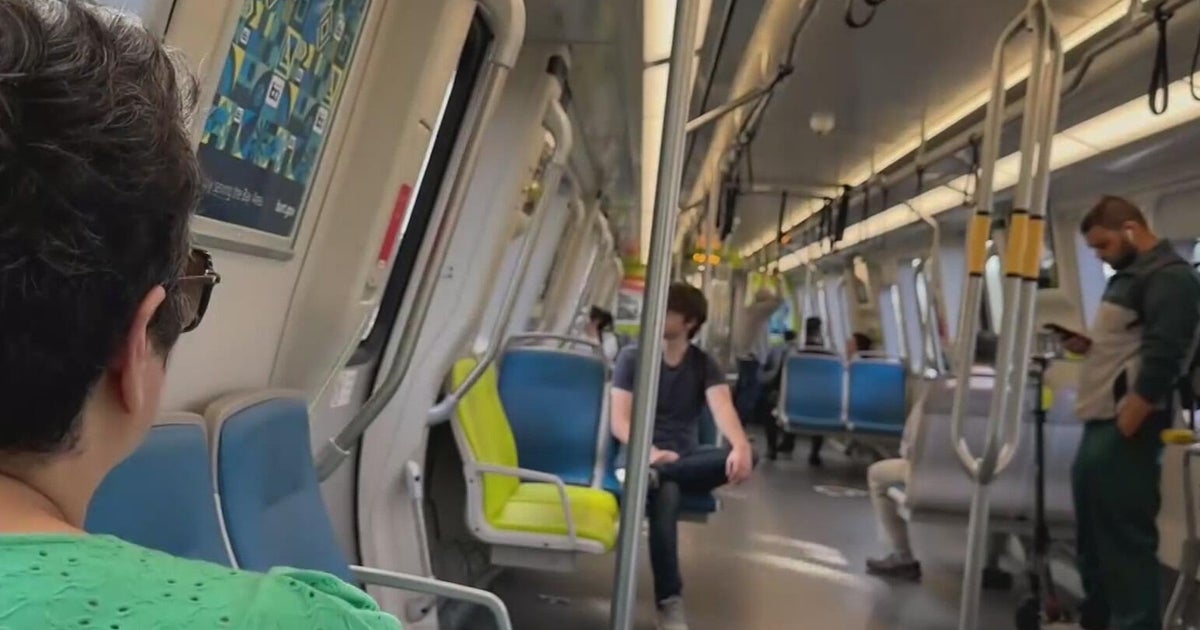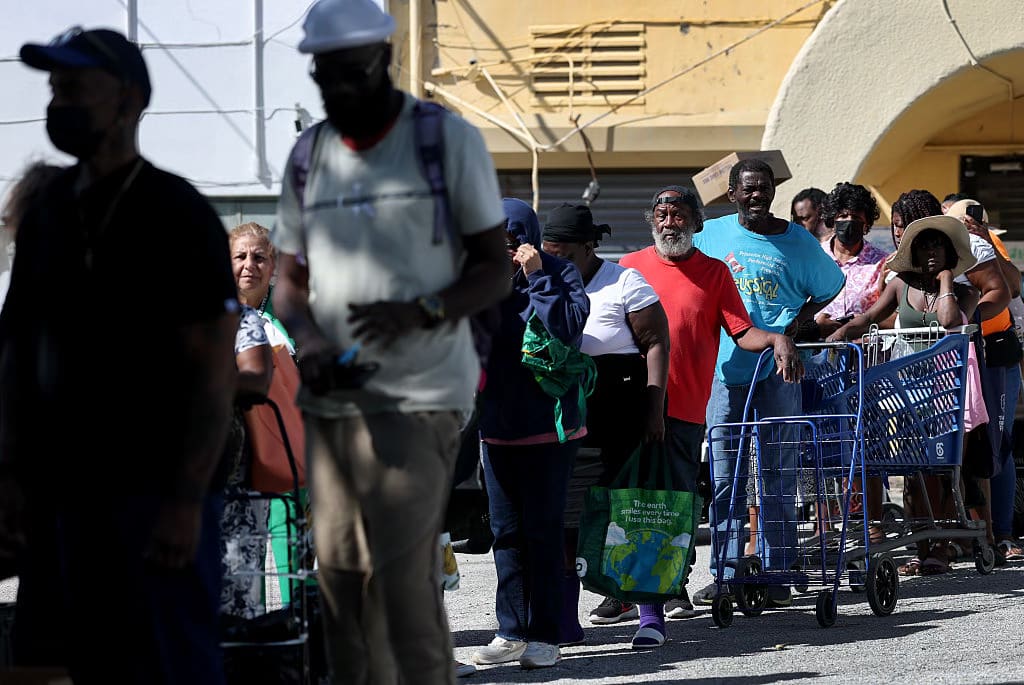"A very problematic time" — How to navigate holiday travel
The holiday travel season — which began in earnest this week — is expected to be downright chaotic this year as Americans regain confidence in flying and gather with family again, and as airlines recover from the pandemic's disruptions.
Already, airlines have struggled to stay on schedule, resulting in widespread flight cancellations and distressed passengers.
Experts anticipate even more headaches as record numbers of travelers take to the skies during the busiest travel period on the calendar.
On Friday, the Transportation Security Administration screened more than 2.2 million passengers at airports nationwide, marking a single-day record since the beginning of the pandemic.
The TSA also said it expects to screen about 20 million passengers over the Thanksgiving holiday, from Friday, November 19 through Sunday, November 28.
"This is a very problematic time. I really can't recall a time we've seen such sustained problems with flight cancellations," said William J. McGee, an airline flight operations specialist and aviation adviser to Consumer Reports, a nonprofit consumer advocacy group. "Airlines are playing whack-a-mole — they are cancelling these flights on a daily basis."
So what's with the persistent delays and cancellations, and what should you expect if you plan to travel over the holidays?
Widespread delays and cancellations
Southwest and American Airlines each cancelled thousands of flights last month — before the busiest time of the year — blaming weather and air traffic constraints.
But aviation industry analysts say the cancellations were more likely due to staffing shortages for which airlines should take responsibility. Early on in the pandemic, airlines slashed staff to reduce costs as Americans hunkered down and airliners were grounded.
"Airlines cut employees, furloughed folks and then vigorously ramped up operations to capture the demand we're seeing now," said Willis Orlando, a product operations specialist at Scott's Cheap Flights, a flight deals platform. "But onboarding and training staff again has been a bigger challenge for some airlines than others. Staffing is a lingering issue."
The fact that flight cancellations surged before the holiday travel period is cause for concern, too.
"The cancellations we've been seeing don't seem to stop, and that was before Thanksgiving," McGee said. "There is no getting around the fact that airlines have not been meeting schedules lately and there are a lot of unanswered questions."
The group this month sent a letter to Department of Transportation Secretary Pete Buttigieg urging the DOT to hold airlines accountable for widespread cancellations and changes and to properly reimburse passengers. The group also suggested that staffing shortages were to blame for the issues.
"According to credible reports, a key factor in all these disruptions is a shortage of crew and other airline employees, due to furloughs, encouraged early retirements, and outsourcing — despite the CARES Act specifically stating that taxpayer bailouts were designed to prevent airline labor shortages," McGee wrote in the letter.
If scheduling problems persist, Thanksgiving week will be a difficult one for airlines and passengers.
"The later holidays, like Christmas and Hanukkah, are spread out and people travel over many different days. But Thanksgiving is so compressed that if you have problems meeting a schedule because you don't have enough aircraft or crew, you really can't hide it," McGee said.
The best consumer tips pros offer is to always book the earliest flight of the day, which is least likely to be cancelled or delayed, given that flight crews typically spend the night at the place of departure and the plane is there. Book nonstop flights, too, as opposed to connecting flights. "It's simple math. If you are taking four flights instead of two, it doubles your chances of delays or cancellations," McGee said.
Insufficient flight refunds
When a flight is cancelled or delayed, passengers are subject to a given airline's contract of carriage, which dictates airline responsibilities and passenger entitlements.
When an airline blames weather or air traffic control for cancellations, they are considered unforeseeable circumstances out of the airline's control. In such instances, passengers don't receive the same kind of compensation as they do when a flight is cancelled due to a staffing shortage or issue with an aircraft, for example.
"Your rights are defined by the airlines themselves, not the DOT; so if the airline says the flight was delayed due to air traffic control or weather, the consideration you are given is different versus if there is a problem with a crew member or broken airliner," McGee said.
If airlines don't properly attribute reasons for cancellations, passengers could be owed more money than they have received in refunds. "Tons of people in the last couple of months may be due better compensation than they've been told," McGee said.
He advises passengers to keep good records of their flights, including the airline, flight number and travel date. "You're never going to get any kind of satisfaction or compensation if you don't have all the information collected," he said.
Additionally, not all consumers are aware that they may be due refunds.
Under federal law, if a flight is significantly delayed or cancelled before it takes off, consumers are entitled to cash refunds. But airlines will typically offer vouchers or airline credit before they cough up cash.
"Consumers need to push the envelope if they are offered vouchers or an alternate itinerary. Airline agents know you're entitled to a refund as long as you don't take the flight," said Orlando, of Scott's Cheap Flights.
Cancelled flights can also lead to incidental costs such as spending on a hotel room, rental car or food — none of which airlines are required to cover.
Some credit card companies offer trip interruption insurance, although not all consumers are aware of this benefit.
"It's there because airlines aren't required to compensate you for incidentals — just the cost of the ticket. If you want coverage, check out your credit card company's policies," Orlando said.
Another way to prepare for cancelled flights is to book a second flight with a fully refundable fare that departs within two to three hours of your first flight.
"Keep on eye on the terms and conditions so you can cancel it on time, assuming your first flight goes up," Orlando said.
Long lines at airports
If there was ever a year to get to the airport early, this is it.
Expect even longer lines than usual, with airline personnel now tasked with verifying passengers' COVID-19 vaccination records, and ever-changing restrictions as COVID-19 cases surge overseas.
"The way things are going lately, everything points to a very difficult week, not even considering talk of weather," McGee of Consumer Reports said.
Also expect airports across the U.S. to be more crowded in general.
"If you're worried, heed the classic advice to get to the airport early, at least two hours before your flight domestically even if you have TSA PreCheck or Clear," said Andrew Gross, a AAA spokesperson. "Those lines are going to be crowded, too."



